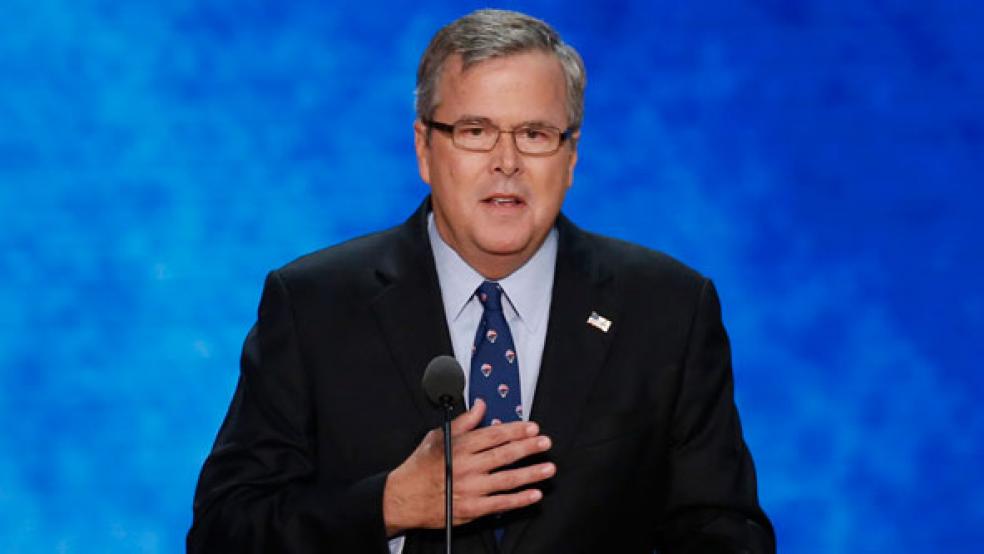The man behind the podium decried the “opportunity gap” in the United States, denouncing as unjust a system that allows some a clear path to productive employment and opportunity while others of similar ability are beaten down by poverty and educational disadvantage. The question is, he said, “the defining issue of our time.”
While it sounded an awful lot like President Obama, who used the very same language in a major speech about income inequality last year, the speaker was former Florida governor Jeb Bush, who addressed the Detroit Economic Club yesterday in language that has been heard with increasing frequency from Republican presidential hopefuls.
Related: Jeb Bush – Denying DREAMers an Accelerated Path to Citizenship Is ‘Ridiculous’
“Tens of millions of Americans no longer see a clear path to rise above their challenges,” Bush said. “Something is holding them back. Not a lack of ambition. Not a lack of hope. Not because they are lazy or see themselves as victims. Something else. Something is an artificial weight on their shoulders.”
On the question of what that weight is and how he would remove it, Bush punted, promising details in the days and weeks to come.
That leaves him a step behind some of his potential rivals for the GOP nomination.
His fellow Floridian, Sen. Marco Rubio, has spent months laying out his proposals. As one of a few GOP presidential hopefuls who can legitimately claim a working class background (Rubio is the son of a bartender and a hotel maid), he has put forward a number of suggestions for empowering low- and middle-income Americans, including an increase in the child tax credit and an overhaul of the earned income tax credit that would be paid monthly, rather than in a lump sum at the end of the tax year.
Related: GOP Ready to Rumble on Obama’s Tax and Spend Budget
Kentucky Sen. Rand Paul has offered only slightly more detail than Bush, suggesting that the key to boosting the middle class lies in the old Republican standby, tax cuts.
In an appearance on Fox News Tuesday, he said, “I want more money left in the communities, particularly poor communities, particularly communities that have high unemployment. So I would fix the problem by leaving money in the productive sector. And this is a fundamental disagreement between the president and I. The president wants that money to go to Washington. I want to leave it in your community.”
Interestingly, the candidate receiving the most buzz recently, Wisconsin Gov. Scott Walker, has done the least to reach out to the middle class. Like Rubio, Walker can claim a middle class background as the son of a minister and part-time bookkeeper. However, his history of feuding with labor unions and a recent budget proposal that cuts social services and slashes the budget of Wisconsin’s vaunted state university system – a key path to prosperity for many in his state – may make it tricky for him to claim the mantle of champion of the middle class.
Top Reads from The Fiscal Times:
- FCC Head Wheeler’s About-Face on Net Neutrality
- How Big Cities Mine Big Data to Solve Big Problems
- The New Food Chain That Can Crush McDonalds





